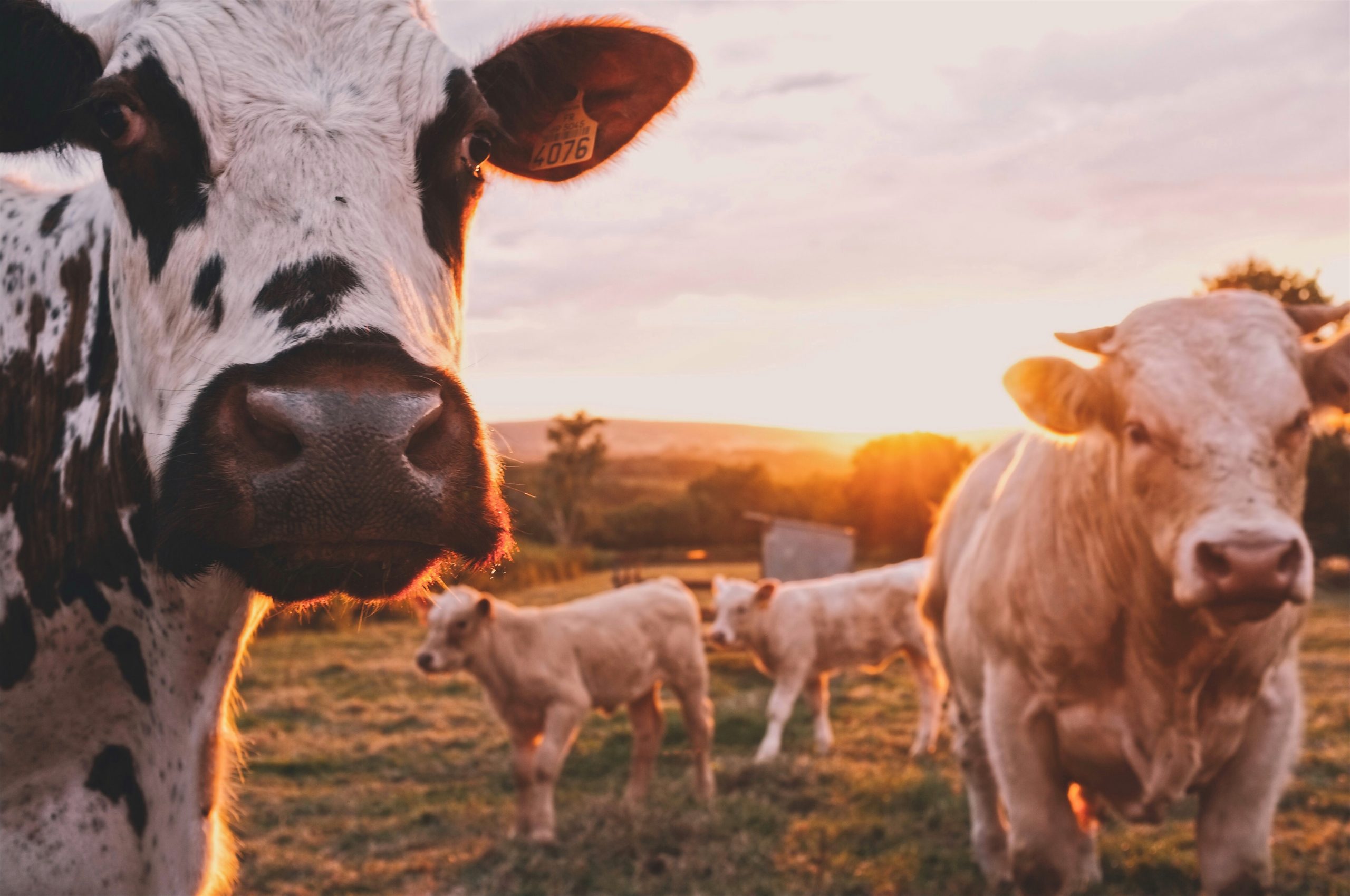
by Martin Luecke
A pound of meat can be anywhere from $1 for chicken and up to $100 for certain steaks. But one of the hidden costs is the trillions of pounds of CO2 created every year worldwide. In America we are currently using 70 percent of our grain to feed livestock. As my friend who runs a vegan restaurant said: “America could feed the world with what we produce if we just stopped eating meat.” It’s a salient point considering the massive amount of resources dedicated to the meat industry, from oil based fertilizer to grow feed, to diesel powered farm equipment to plant and harvest, to long distance transportation of cattle. And that’s just the beginning of the equation.
The meat industry says the average pound of beef requires almost 5 pounds of corn, and research shows each pound of beef creates 22 pounds of CO2. Very old data shows the US meat industry creates 500 billion pounds of CO2 per year, with 385 billion pounds of methane. It’s methane that is our real problem in the future because it’s 10 times the effect of CO2. Right now giant bubbles of the gas are being released in the Arctic circle because of permafrost melt. Add that to the largest amount of animal methane being released since the dinosaurs. Methane is a multiplier in the greenhouse gas equation, and therefore much more dangerous because it is exponentially speeding up the heating of the planet.
One answer to this situation is to reduce our meat consumption. There are plant based products in our grocery stores that are very meaty tasting and could easily replace three meat meals a week in your household without even trying. (Yesterday I bought Beyond Beef in HEB). The goal should be to reduce our meat consumption over time, be open minded to trying new things, and to vote with our pocketbooks.
You, dear reader, can test this theory by visiting our new Facebook page: Windsor Park Carbon Shrinker. The Climate Change Committee has built a google docs spreadsheet where you choose from ten options of carbon reduction, input the action, and the spreadsheet adds up the reduction. Just click on the top post which contains the link to the spreadsheet. Then add your name and line of information for each of the categories you can reduce and watch as the entire neighborhood participates in reducing our carbon footprint. A more plant based diet will change our collective footprint dramatically. And you can start TODAY!






 Seven of our eleven 2023 Scholarship recipients being recognized at our June WPNA meeting.
Please support our scholarship effort by contributing below through our secure PayPal site.
Seven of our eleven 2023 Scholarship recipients being recognized at our June WPNA meeting.
Please support our scholarship effort by contributing below through our secure PayPal site.



